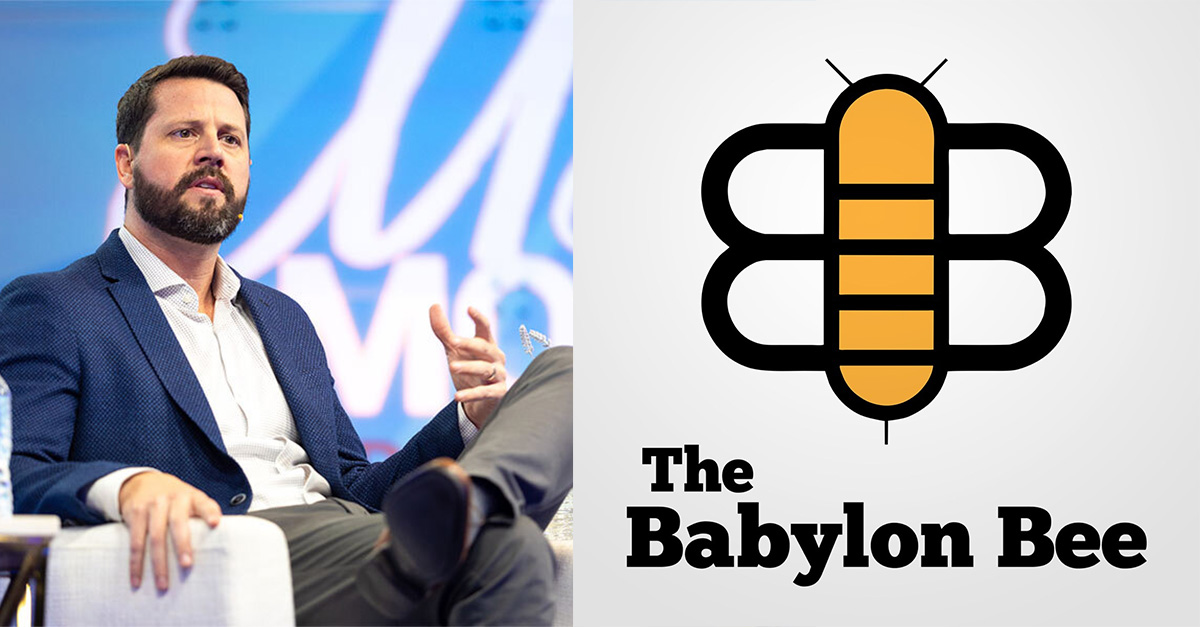


Get a free copy of Parental Rights & Education when you subscribe to our newsletter!

With military conflicts on the rise around the world, Christians must approach the topic of war with greater caution and discernment because we know the weight of sin and its consequences and because we are called to be peacemakers.
As global tensions mount after conflict has broken out in at least two regions and is now threatening to happen again in a third, war and peace have become central concerns to all Americans, including Christians. What should believers think about a world currently beset by invasion, violence, and death? How do we navigate the ethical minefield of military conflict in a world that desperately needs peace yet seems hellbent on war?
For Christians, these aren’t abstract questions. They’re urgent moral dilemmas with real consequences for how we live, vote, and serve.
The Bible is clear: War is a tragic but occasionally necessary reality in our sin-corrupted, fallen world. But as followers of Christ, called to be peacemakers, how should we respond?
This article will explore the Christian ethics of warfare, peace-building, and the thorny issue of supporting government decisions about military action. Let’s face it — the world urgently needs clarity.
First, let’s not kid ourselves. War is here because sin is here. The violence that plagues humanity isn’t just the fault of poor leadership or political posturing; it’s the direct result of the fall. Genesis 3 tells us that when sin entered the world, everything broke, including peace. And from that moment on, humanity has been at war — first with God, then with each other.
According to the Global Peace Index 2023, the world has seen a consistent decline in peacefulness, with increased conflict in regions like Ukraine, the Middle East, and parts of Africa. In addition, recent Pew Research indicates that 55 percent of Americans are wary of U.S. involvement in foreign conflicts and prefer that government leaders focus on domestic issues. This contrasts with earlier decades when more Americans supported military action in defense of national security, suggesting a shift in public opinion that Christians share.
If you’re looking for a sanitized version of human history, you won’t find it in the Bible. The Old Testament records war after war, many of them commanded by God Himself. And before you accuse Scripture of endorsing violence, let’s be clear: These wars were never waged for personal gain or conquest. They were acts of divine justice, dealing with evil in a fallen world.
Deuteronomy 20 provides Israel with clear instructions on how to conduct war. Why? Because evil needs to be confronted. Sometimes that confrontation takes the form of force.
But what about the New Testament? Has war suddenly become off-limits with the arrival of Christ, the Prince of Peace? Not quite. Jesus’ call to love your enemies (Matthew 5:44) and turn the other cheek (Matthew 5:39) is about how we respond to personal offense, not a blanket rejection of force. In Romans 13:4, Paul reminds us that the government “does not bear the sword in vain.” Governments have been given the authority to use force, including military action, to uphold justice.
However, this doesn’t mean war is something we take lightly. If anything, Christians need to approach the subject of war with greater caution and discernment, precisely because we know the weight of sin and its consequences.
To be clear, Christians do not have the luxury of moral confusion on this issue. While the world flails around, justifying wars based on self-interest or political expediency, believers are called to something higher. This is where the concept of Just War comes in — a framework built on biblical principles and articulated by theologians like Augustine and Thomas Aquinas.
Modern conflicts often spark debate among theologians regarding their adherence to Just War criteria. For instance, World War II is widely regarded as a “just war” due to its goal to defeat tyranny and genocide. In contrast, the Iraq War was contentious, with many arguing it failed the criteria of “just cause” and “right intention.” This ongoing debate highlights the importance of applying Just War principles rigorously.
As confidence in the U.S. military has reached a historic low of 60 percent, many Americans believe the military’s use of force should be carefully scrutinized. This skepticism underscores the need for Christians to uphold high ethical standards in matters of war.
The concept of Just War has its origins in Christian theological tradition. Augustine and Aquinas may have first articulated it, but it was later expounded on by Reformation leader Martin Luther, the Puritan theologian William Ames, and the theologically trained jurist Hugo Grotius. Their deep thinking and writings on this topic helped define the moral grounds under which war could be considered justifiable, which are as follows:
Just Cause — War must be waged for a righteous cause, such as defending the innocent or combating a grave injustice. War for power, revenge, or greed is always wrong.
Legitimate Authority — War can only be declared by a rightful government, as established by God. This means no private militias or vigilante justice.
Right Intention — The intent behind the war must be to restore peace and justice. Not to enrich the state, not to expand borders, but to establish righteousness.
Last Resort — Every possible peaceful avenue must be explored before engaging in war. Diplomacy, negotiation, and compromise must be tried first. War should be the last tool in the box, not the first.
Proportionality — The harm caused by war must not exceed the good achieved. Disproportionate devastation or suffering is never justified.
Discrimination — Civilians must be protected. War should target combatants, not innocent bystanders. This principle flies in the face of much modern warfare, where civilian casualties are dismissed as “collateral damage.”
If a war fails to meet these criteria, it’s not justified. Period. Christians should resist the temptation to align themselves with wars waged for political or economic interests. We are called to a higher standard.
Here’s where the dilemma deepens: What happens when your government calls you to fight in a war that you, as a Christian, believe is unjust? Romans 13 calls us to submit to governing authorities. But this is not a blank check for governments to wage unjust wars. In Acts 5:29, Peter declares, “We must obey God rather than men,” and this principle extends to war as well. If a government’s military action violates God’s moral law, Christians are not obligated to comply.
Consider this: While Romans 13 teaches submission to authority, it also assumes that authority is acting justly. Christians must discern when their government’s military action aligns with biblical principles and when it does not. Those contemplating military service must recognize this dilemma as they serve.
In World War II, the German church faced this dilemma. Many Christians followed their government’s orders without question. But some, like Dietrich Bonhoeffer, recognized that Hitler’s war was profoundly unjust. He opposed the Nazi regime and participated in a plot to end its tyranny. Bonhoeffer paid for his convictions with his life, but his legacy reminds us that loyalty to Christ must come before loyalty to the state.
Jesus didn’t call His followers to be passive observers. In Matthew 5:9, He said, “Blessed are the peacemakers, for they shall be called children of God.” Even in a violent world, the Christian must actively pursue peace. But this peace isn’t the world’s fake, feel-good peace. It is peace built on the foundation of God’s justice.
Look around. The world is morally drifting. Governments tout their “justifications” for military interventions, and the media serves up propaganda to sway public opinion. We’ve seen wars justified under the guise of democracy, liberty, and national security when, in reality, some have been about power, resources, and geopolitical influence.
The moral chaos of our age stems from this foundational issue: The world doesn’t know what peace is because it doesn’t know God. As long as society continues to reject God’s moral law, it will continue to engage in wars that leave scars for generations.
Christians, the time for complacency is over. The world is in moral freefall, and war is a symptom of a deeper spiritual disease. You cannot afford to sit on the sidelines, watching the chaos unfold. You are called to be salt and light in a world desperate for truth, justice, and peace. It’s time to speak out, to stand for righteousness, and to model what true, biblical peace looks like.
Will you stand for truth, even if it costs you?
This is not theoretical. Your daily decisions — how you engage with these moral dilemmas — will shape the future. Pray for wisdom. Advocate for justice. Be peacemakers in everything — in your family, your community, your church, your workplace, and even with your vote — so we can be daily diplomats in a world that knows nothing of real peace. Speak truth about the deadly and unexpected consequences of sin and our need for a Savior.
And above all, never forget that our ultimate hope is not in any earthly government or military power but in the return of Christ, who will bring true and lasting peace.
If you like this article and other content that helps you apply a biblical worldview to today’s politics and culture, consider making a donation here.

